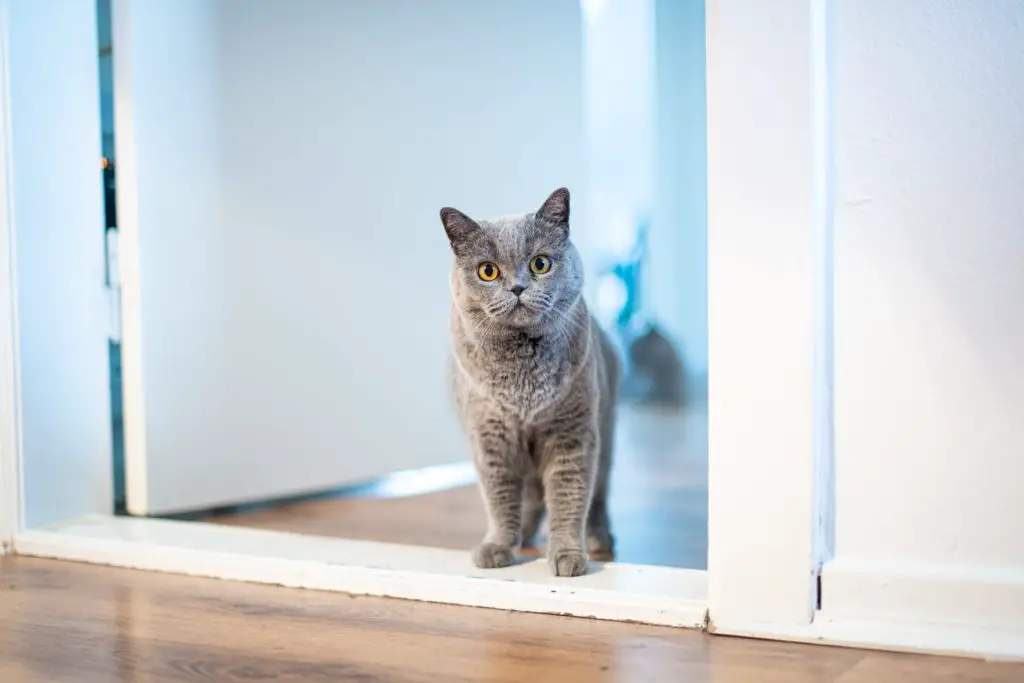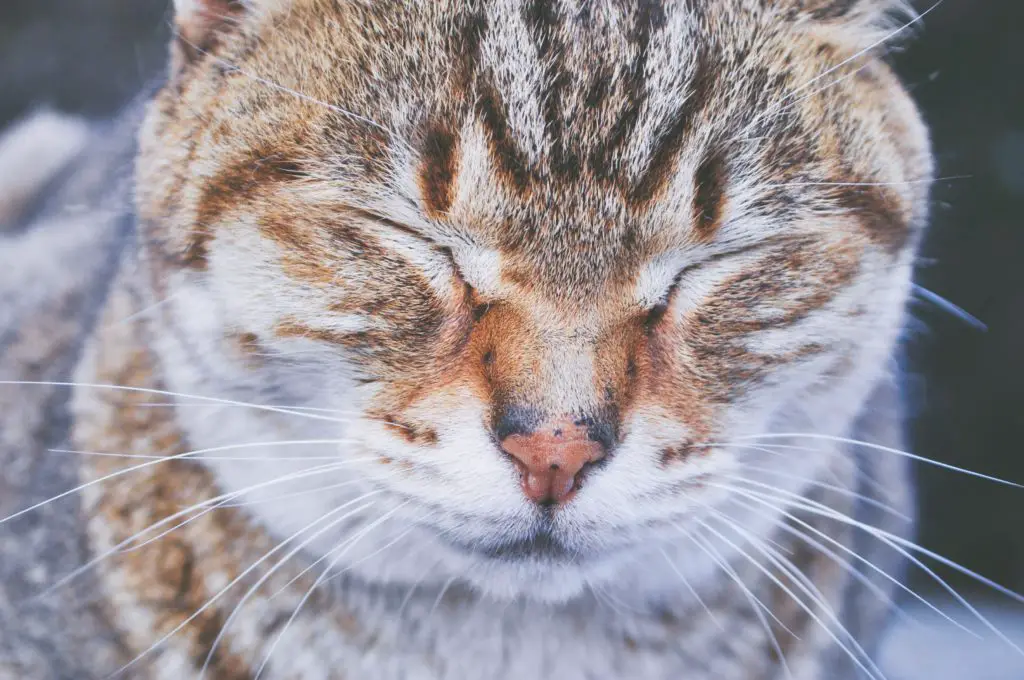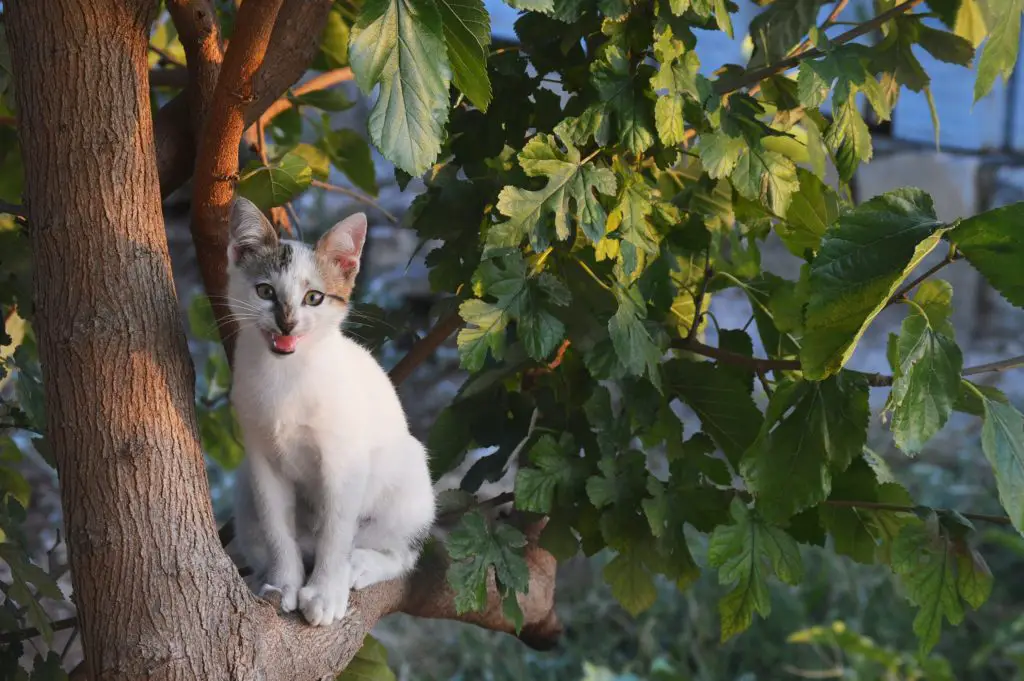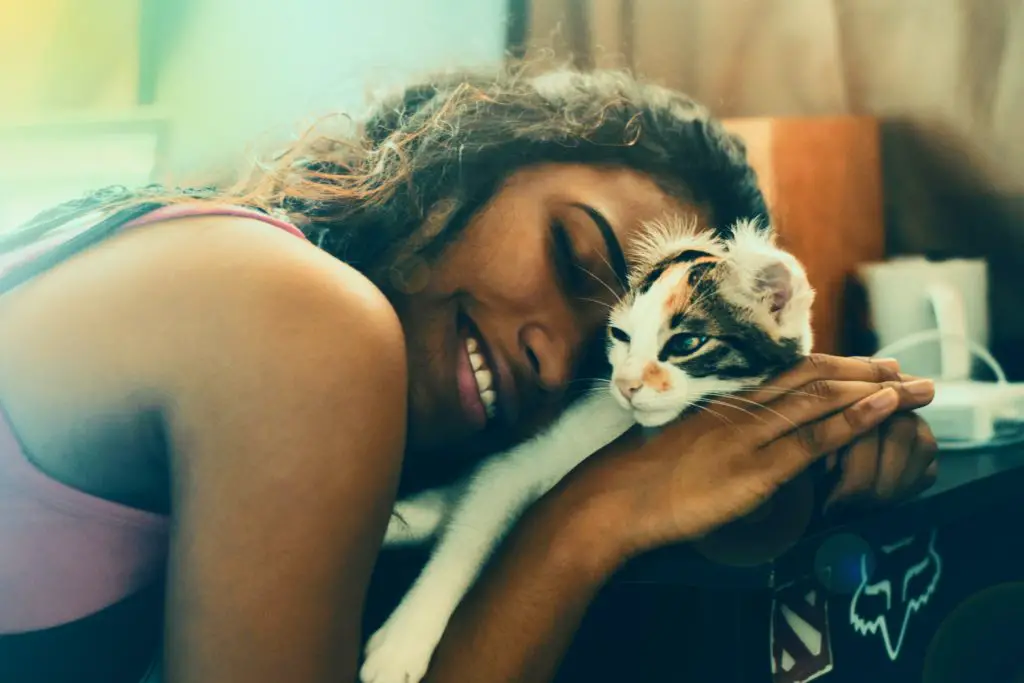You love your older cat, but lately, they may have begun to poop outside their designated litter box area, which is a nightmare.
Older cats start pooping outside the litter box due to age-related medical reasons, including liver, kidney, and conditions that cause pain when defecating. Your litter box may be dirty or located in the wrong position. Otherwise, there may have been changes in your household causing your cat stress.
The best way forward is a process of elimination to find the underlying cause of your kitty’s bad habits. Please read on to discover the key reasons behind your older cat pooping outside the litter box.
Medical Conditions
The important thing to remember is that your poor old kitty is not trying to be naughty or revenge poop. There are several valid reasons for your moggy’s behavior that the poor dear just cannot avoid.
Kidney Disease
Chronic Kidney disease (CKD) may arise at any stage of your cat’s life, but it occurs most commonly over the age of 7 years in older felines.
The prevalence of this condition increases as your cat grows older, and some estimate that cats over 15 years old have a 20-50% chance of developing this condition.
Cats with CKD exhibit a variety of symptoms, including incontinence in the form of both urination and house soiling. Other signs to look out for include:
- Increased drinking and urination
- Lethargy
- Bad breath
- Diarrhea
- Vomiting
- Lack of appetite.
Liver Disease
Your cat’s liver plays an essential role in your cat’s health, including digestion, nutrient absorption, and the removal of toxins from the blood. As your cat ages, its liver becomes more susceptible to damage from a variety of sources.
Liver dysfunction is a common ailment in older cats and may present symptoms such as changes in urination and defecation that may result in house soiling behaviors.
Symptoms that your cat has liver issues include:
- Lack of appetite
- Increased thirst and urination
- Jaundice (yellowing of eyes, gums, and skin)
- Weight loss
- Drooling.
Medical Conditions that Cause Pain in Passing Stools
If your older cat is experiencing pain when they use the litter box, they may psychologically associate it with pain and begin to avoid using it.
Look out for any signs of discomfort when your cat uses their litter box, such as excessive straining or sounds of distress.
Many feline medical conditions may cause pain in your cat when they attempt to use the litter box, resulting in avoidance behaviors.
These conditions include:
- Colitis
- Constipation
- Anal sac disease.
Other Medical Conditions That May Cause House Soiling
Unfortunately, a wide variety of physical ailments may be behind your older cats’ unruly pooping behaviors.
You should enlist the help of a veterinarian in the process of elimination if you suspect your cat may have an underlying medical condition.
Some various conditions may include:
- Age-related cognitive brain function decline
- Endocrine disorders such as hyperthyroidism
- Diabetes Mellitus
- Impaired sensory and mobility function.
Litter Box Related House Soiling
Cats are fastidious by nature and naturally gravitate towards areas where they can bury their poop. Cats in the wild bury their feces as a predator avoidance response and hide their presence from larger predatory animals.
They also bury their poop as a natural evolutionary adaptation of eliminating away from their score living areas.
If your cat has begun avoiding their litter box and decorating your home instead, it may be that your litter box is not up to scratch.
The reasons why your cat may poop outside the designated litter box include:
- The litter box has become soiled, and you are not keeping it clean enough. Cats avoid dirty areas and will seek another area to void their bowels.
- The texture or scent of your cat litter is not attractive to your cat. Finer cat litters that mimic the feel of natural soil are more appealing to your cat.
- Your litter box is in a high traffic area or in harm’s way. If your cat feels fearful in using the letterbox area, such as places where they may have contact with dogs, you should move it to a quieter and safer space.
- Your cat litter is not of adequate depth. Cats may avoid shallow litter trays where they can not adequately cover their waste.
- Your litter box is too small or not easily accessible. Ensure that your box is a suitable size and height to accommodate your older cat, especially if they have mobility issues.
Psychological Issues and Feline House Soiling
Cats are susceptible to psychological reactions to changes in their environment, and older cats are especially prone to stress caused by changes in their routine.
When a cat experiences a sudden change in its environment, it may start to mark out its areas in urine and feces as a stress response.
You will see signs in your cats, such as hiding behaviors, loss of appetite, and an unwillingness to play or seek affection.
There are a variety of causes for stress-related house soiling, but the most common are the following.
New Pets in the Home
If you have recently introduced another cat or dog to the home, your older cat may exhibit house-soiling behaviors. Cats are territorial, so introducing another pet may cause your cat severe stress.
Your cat may be fearful of using the litter box as it places them in a vulnerable position, especially if a new dog is part of the changes.
It would be best to put the litter tray in a quiet area that your new pup cannot reach until your cat has adjusted.
Your cat may also be reluctant to use the same litter tray as a new feline in the house, so you may need to clean the litter box several times a day when introducing a new cat to your home.
New People in the Home
If your older cat is set in their ways, a new person moving into their territory may cause them considerable stress.
Your cat may perceive the presence of a stranger as threatening and pee or poop around the house as a territorial response.
If your cat is nervous about strangers or young children, you should ensure you provide a safe place for your kitty’s litter box where they will not be disturbed.
If your cat has a room they frequently seek refuge, it is a great place to place your tray.
Separation Anxiety
Older cats can become exceptionally ‘clingy’ to their chosen human and suffer if left alone. They may begin to soil the house or areas where their owner’s scent is strongest to mark these areas as their territory.
If you plan to go away, it is an excellent idea to ask someone your cat is familiar with to stay with them.
Alternatively, seek an established and caring cattery or veterinary advice about mild sedation for your pet.
How To Break This Habit?
Your older cat needs your patience and care more than ever, and there are several ways that you can address this rather uncomfortable state of affairs.
Make Sure the Problem Is Not a Medical One
If your older cat’s bowel habits have started to change, and you suspect they may be an underlying medical condition, seek advice from your veterinarian.
Watch your cat and look out for clinical signs of illness, and their defecation is painful.
Make Sure the Problem Is Not a Litter Box-Related Problem
Ensure your cat has a clean and suitable litter box. Cats have particular litter preferences, and older cats may need larger litter boxes with lower sides for access.
You may also place multiple litter boxes for fussy cats so that they have other choices in which to conduct their toilet.
Make Sure Your Litter Box Is in the Correct Location
If your older cat insistently poos in another area outside the litter box area, ensure your cat is not frightened of people or pets in the area. Place your litter box in a quiet and safe space that your cat prefers.
An excellent place to choose is an area of your home where your cat naturally seeds refuge when they are stressed.
Make Sure the Problem Is Not Stress-Related
If there are recent changes in your household, it may trigger your older cats’ lousy toilet habits.
Socialize your cat with new pets and household occupants slowly and provide a safe enclosed space for your cat until they adjust.
If you plan to leave your older cat for extended periods, ensure you have someone familiar to stay with them.
Conclusion
Your older cat can’t explain to you when they are in pain or if they are suffering undue stress. One of the ways they may show you is through changes in their toilet habits.
Never punish your cat, as this will worsen the problems in the long run. Once you figure out the underlying problem, you will be on the way back to a happy home with a happy cat.

My name is Katie, and I have had different pets at home for as long as I can remember. While I can definitely say I love all animals in general, my heart belongs to cats and dogs. I know you are supposed to choose one or the other, but I could never really decide. I’ve also owned hamsters and fish when I was a kid, and they filled my childhood with very delightful memories.





